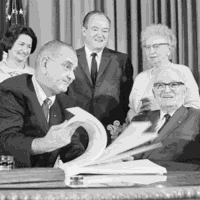A brief look at American health care's long, complicated history – Herald & Review

America’s health care system has existed, in one form or another, since the time when the country’s founding fathers were still fighting for their freedom from Great Britain. Over the intervening 200-plus years, medical care in the U.S. has had a long history of ups and downs, from the difficulty of addressing racism toward the formerly enslaved to the historic enactment of the Affordable Care Act.
Health care in the U.S. may be best described as a hodgepodge of systems. From a global perspective, there are four main models of health care, each of which takes a different approach both legislatively and in practical terms of how it affects a populace’s ability to obtain health care coverage and services. The U.S. model is unique among nations in that it incorporates aspects of each of the four health care models into its own. Most Americans receive coverage under what is known as the Bismarck model, which is to say they are covered through their employer. But the U.S. Veterans Health Administration more closely resembles the Beveridge model, as it leans toward a more socialized coverage system. And then there is Medicare, whereby the U.S. government acts as a single-payer service for older Americans. This is in stark contrast to our neighbor to the north—Canada offers a national health insurance model, where the government essentially runs health care on behalf of its citizenry. In China, an out-of-pocket model is in place, meaning people are on the hook to pay their medical expenses as needed, while in Europe, various countries offer more socialized renditions of the Beveridge and Bismarck models.
The 2020 U.S. Census indicated that as many as 8.6% of Americans do not have health insurance. Universal health care has proven to be an especially tricky topic for Americans to navigate, as lobbyists and politicians alike have waged ferocious campaigns to try bringing it to life—or burying it from ever being signed into law. To this day, the Affordable Care Act, which in recent years brought the country closer to the universal health care model, remains under scrutiny.
With political battles over the health care system ongoing—the most recent controversies centering on health care for transgender youth and the COVID-19 vaccine—Sidecar Health identified 10 major milestones in U.S. health care policy from the colonial era to recent history, charting our nation’s fraught relationship with how it cares for its citizens.


